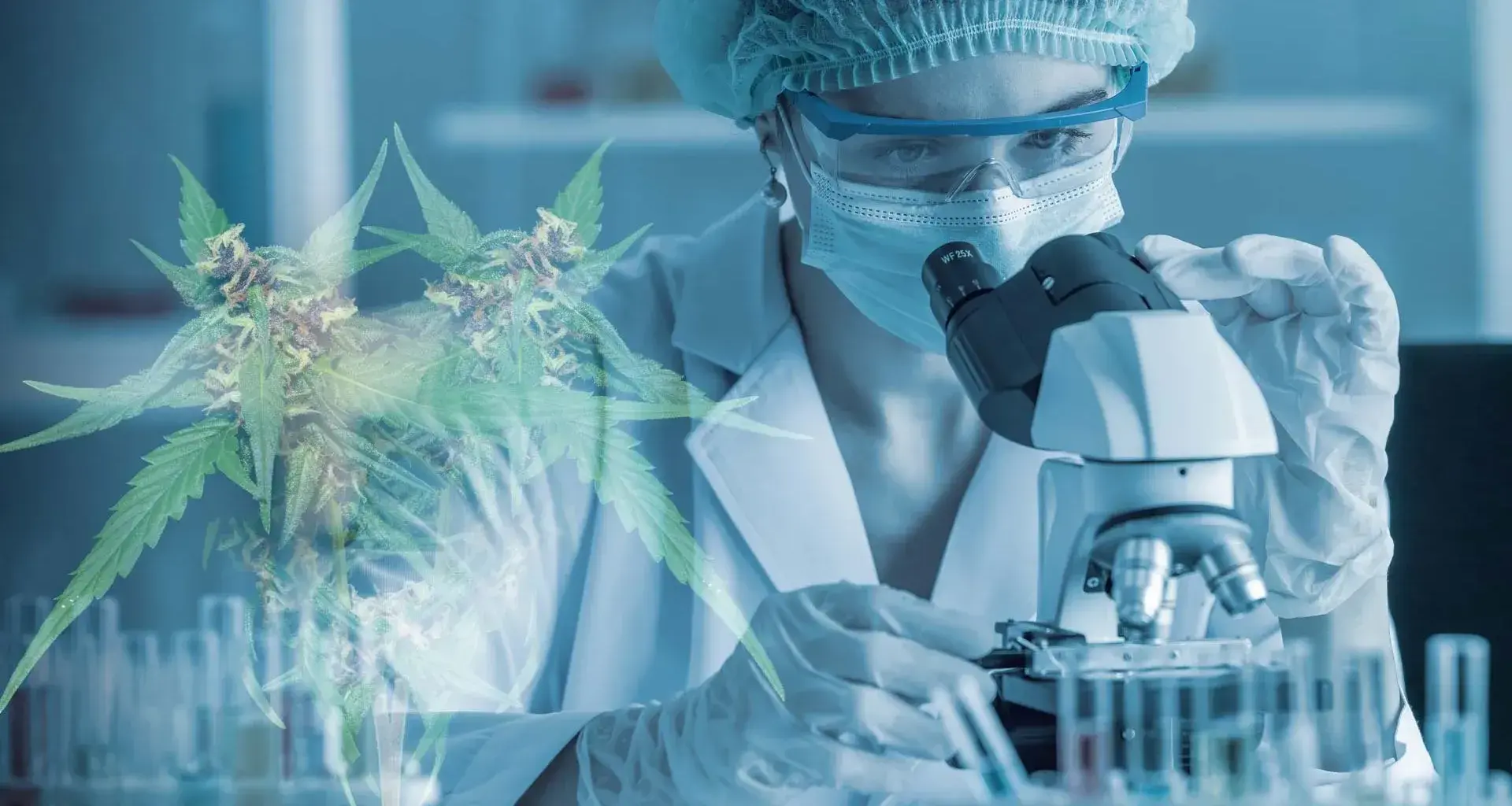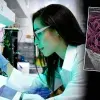Specialists from TecSalud and the company Cardiol Therapeutics are researching the use of a molecule derived from cannabidiol (CBD) to treat COVID-19 patients.
CBD is one of 500 cannabis plant compounds. This chemical substance doesn’t include Tetrahydrocannabinol (THC), the psychoactive ingredient.
“We’ve been researching this molecule for 10 years. In the first phase, we saw that CBD decreases the anti-inflammatory immune response,” explained Servando Cardona, national director of Clinical Research at TecSalud.
“That’s why, in the midst of the pandemic, we were looking to use it on patients with COVID-19 and cardiovascular diseases,” he added.
The team is currently preparing to conclude Phase 2 and 3 studies, the first in Mexico to evaluate the use of CBD in these patients.
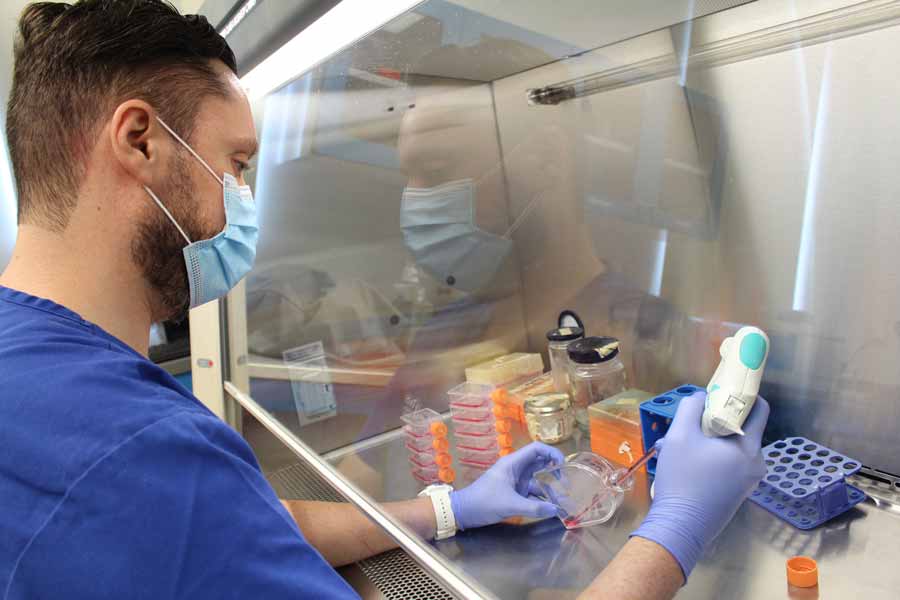
A decade of CBD research
Dr. Cardona explained that a research group from the Institute of Cardiology and Vascular Medicine at TecSalud’s Zambrano Hellion Hospital has been working on the CBD molecule in collaboration with Cardiol Therapeutics for 10 years.
They first looked at the therapeutic benefits and then developed a molecule via in-vitro studies and animal models until it was safe for humans.
The CBD developed is a global contribution whose use is approved by the Federal Commission for Protection against Health Risks (COFEPRIS) in Mexico and the Food and Drug Administration (FDA) in the United States.
“Our molecule has good manufacturing practices, meaning that because it’s made in the laboratory, we can control the exact amount of CBD, unlike other treatments available on the market,” says Cardona.
“We’ve seen good results. Patients can tolerate the dose of cannabidiol well, with safe levels of side effects.”
The CBD was tested on cells and found to decrease the immune response. This protocol was then applied in animal models, where it was confirmed that it had an anti-inflammatory effect.
“We found that the molecule can be applied to many diseases where uncontrolled immune responses cause more damage than the disease, such as heart failure,” said the national director of Clinical Research at TecSalud.
But, in the midst of the pandemic, CBD could be given to patients with COVID-19. The team wrote the protocol but found that Mexico’s regulatory processes were slow because of the health emergency. So, the Phase 1 study was carried out in Canada.
“We’ve seen good results. Patients can tolerate the dose of cannabidiol well, with safe levels of side effects,” he added.
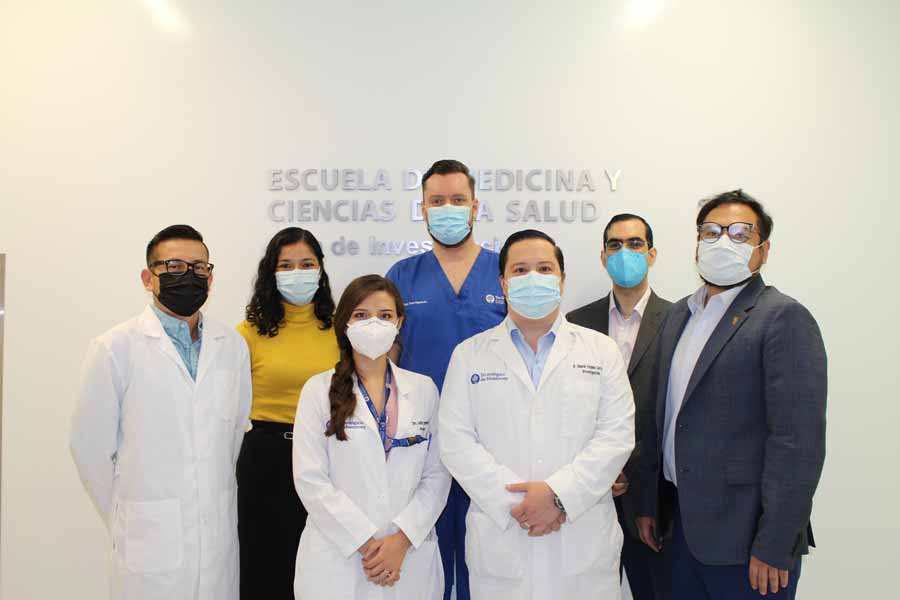
CBD to prevent after-effects of COVID-19
Phase 1 of the study took place in Canada, in which 30 participants received oral synthetic cannabidiol diluted in juice.
Doses were given in different amounts in order to demonstrate side effects. It’s been confirmed that the molecule can interrupt the acute inflammatory response in COVID-19 patients, preventing after-effects.
There are more than 200 confirmed after-effects of SARS-CoV-2, but the one that worries the team most is heart damage, causing symptoms such as fatigue and lack of sleep, because patients are at risk of developing cardiovascular disease, one of the leading causes of death in the country.
Now, the clinical study is in Phase 2 and 3, in which the TecSalud team and Canadian company Cardiol Therapeutics will study 30 Mexicans from a total of 200 volunteers in Mexico, the United States, Canada, and Brazil.
The participants in the study all have the following characteristics:
- Adults over 18 years old
- With non-critical COVID-19
- With a history of cardiovascular, cerebrovascular, or peripheral vascular disease and/or risk factors such as being over 65, diabetic or suffering from high blood pressure.
“In this phase, we want to complete the sample size and demonstrate that CBD prevents patients from developing coronary after-effects.”
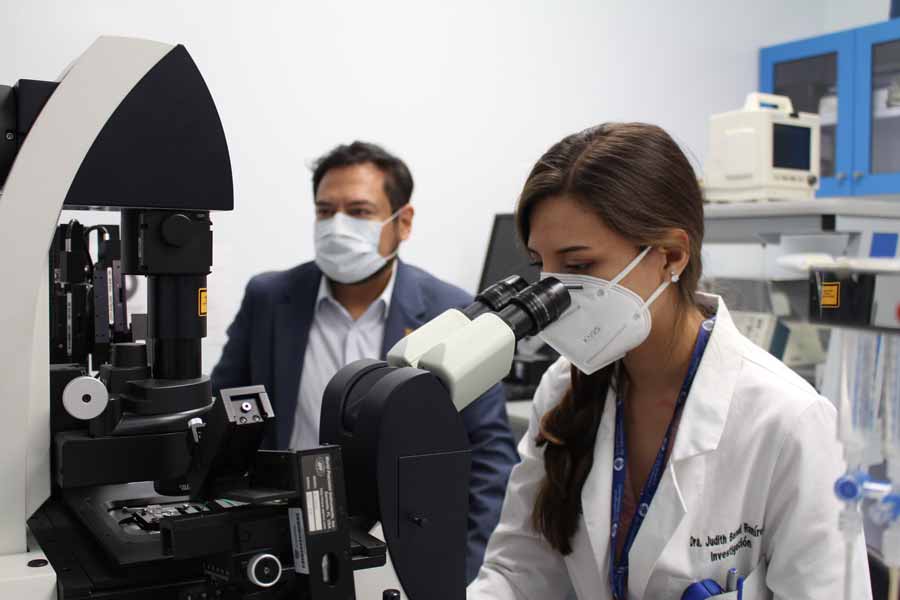
A difficult step: moving from the laboratory to humans
Dr. Cardona said not all institutions have the capacity to carry out this type of study: moving from the laboratory to human experimentation.
The laboratory of Gerardo García, Director of Translational Research at TecSalud, is on the second floor of the Zambrano Hellion Hospital, and the inpatient area where phase 2-3 is being carried out is at the same institution.
“Being in the same place means excellent communication. Thanks to that, we’ve been able to shorten the protocol time by more or less eight years,” he said.
The protocol is designed to start in the inpatient area and continue at home. Patients are given an oral dose of CBD.
Due to the pandemic, the molecule was used to treat COVID-19, but there are other future lines of research in which this treatment will be used.
“We think that cannabidiol can help us treat diseases that we haven’t been able to work with successfully, such as neurological, degenerative, and cardiovascular diseases, which are major causes of death or represent a very high cost,” he explained.
The research protocols are focused on prioritizing the most common health problems in the population.
“These studies are very important to having the legal freedom to choose the exact dose for treating this type of disease in Mexico,” Cardona says, calling for this connection with companies to continue to be encouraged, as it allowed the research protocol to be accelerated.
READ MORE:

